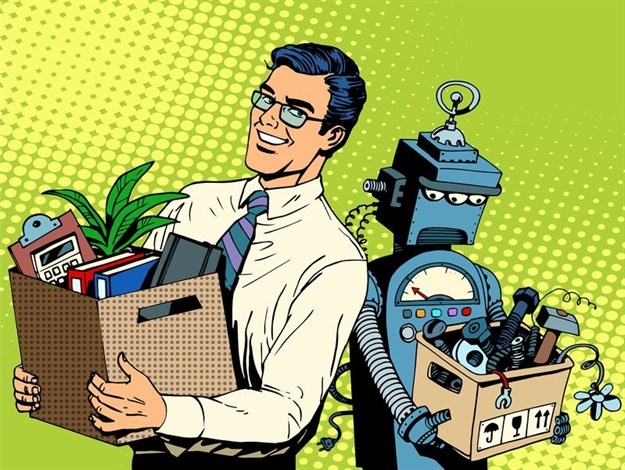
Subscribe & Follow
Advertise your job vacancies
Jobs
- Senior Human Resources Executive Cape Town
- HR Generalist Vereeniging
- MBA Graduate Opportunity Cape Town
Why the future of work is human
No doubt, technology has changed the way we work and its capacity to take over the function of the human being is starkly felt, with many deeply concerned about their future in the workplace.

studiostoks – 123RF.com
“We are at the pinnacle of discovery and growth for the next 40 to 60 years,” says Guy Lundy, senior client partner at Korn Ferry, speaking at the Wits Business School recently.
“The future of work will be characterised by biotechnology, nano technology, Artificial Intelligence and robotics.”
There’s a tendency to view the future as uglier than the present, he says. “This is based on linear thinking; thinking two years ahead, not 10 years ahead and what happens is that people underestimate in the short-term and overestimate in the long-term.” This thinking plays out in the research.
“In a study of 800 global executives, 64% of business leaders consider humans a bottom-line cost and not a top-line value-driver or a creation lever. In South Africa, it’s 69%. There are eight countries that consider technology to have a greater value than people,” the statistics indicate.
CEOs top five values include technology, innovation, service, brand and real estate. “In these, there is nothing human,” Lundy points out.
This ideology can lead to decisions without understanding consequences. “Leadership paints human beings out of the work picture.”
The underlying problem is how to measure the impact of human beings. In office and automation, manufacturing and productions, construction and extraction, where tasks are repetitive - machines are preferred, he says.
Driverless vehicles already exist for example in harvesting fields. However, in social work, healthcare and education, social skills are necessary and tend to be dominated by women and are less automatable. “Not all jobs will be lost. For many the view is that it is better to invest in technology.”
This stems from a tangibility bias measure, he explains. In other words, the cost of a machine is tangible, thus the value is placed on what can be measured.
Korn Ferry set out to find a way to measure human capital and found that it was 2.33 times more valuable to the global economy than technology with a GDP 3.9 times greater.
Thus, the value of human beings is significant, and yields additional value over time.
The more advanced the technology, the higher the level of human capital required to establish a synergistic relationship. Human capital is required for technology to perform. Human capital provides experience and leveraged learning. Human beings affect productivity but also learn, grow and change. Change is driven by people.
There are three reasons to value human capital:
- People are the creators of technology – it does not create itself.
- People are the stewards of technology – they cannot control it but they can shape it and are less effective without it.
- People are the champions of technology.
Companies such as Airbnb and Uber, optimise technology but also have huge teams of people to service their customers. Humans know best how to partner with technology.
“What gets in the way is that there is an insufficient understanding of disruption, there is pressure from stakeholders and the strategy for human capital is not aligned with the strategic goals of the organisation.”
There are three steps:
- Lead, don’t manage: Create, engage, motivate and nurture the potential of people alongside technology.
- Unleash the right people, redefine human resources, welcome a brave new world. HR is the strategic partner to business leadership; accept risk and innovation.
- Invest wisely. Eliminate value blindness. Do not undervalue people because their value is intangible.









